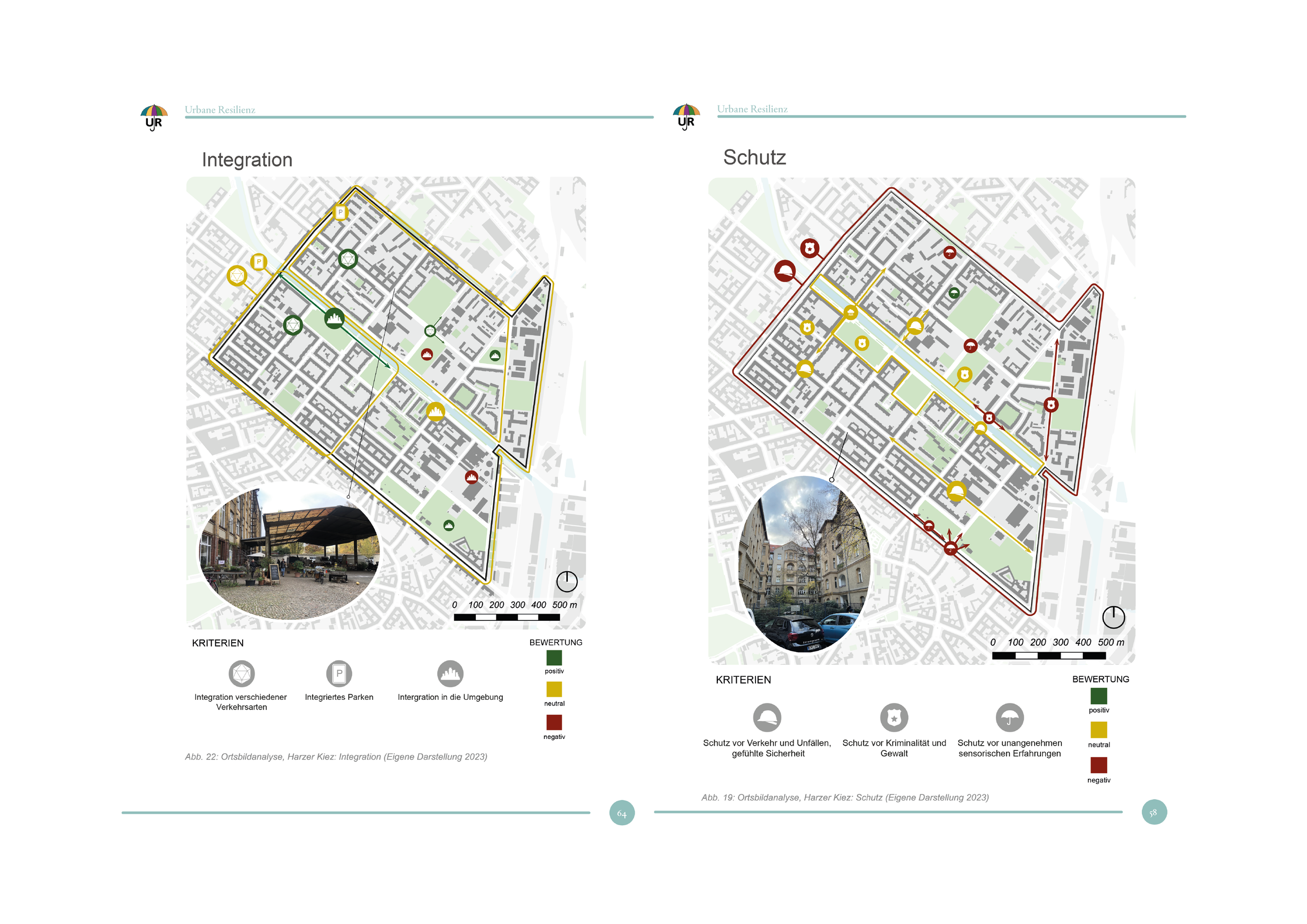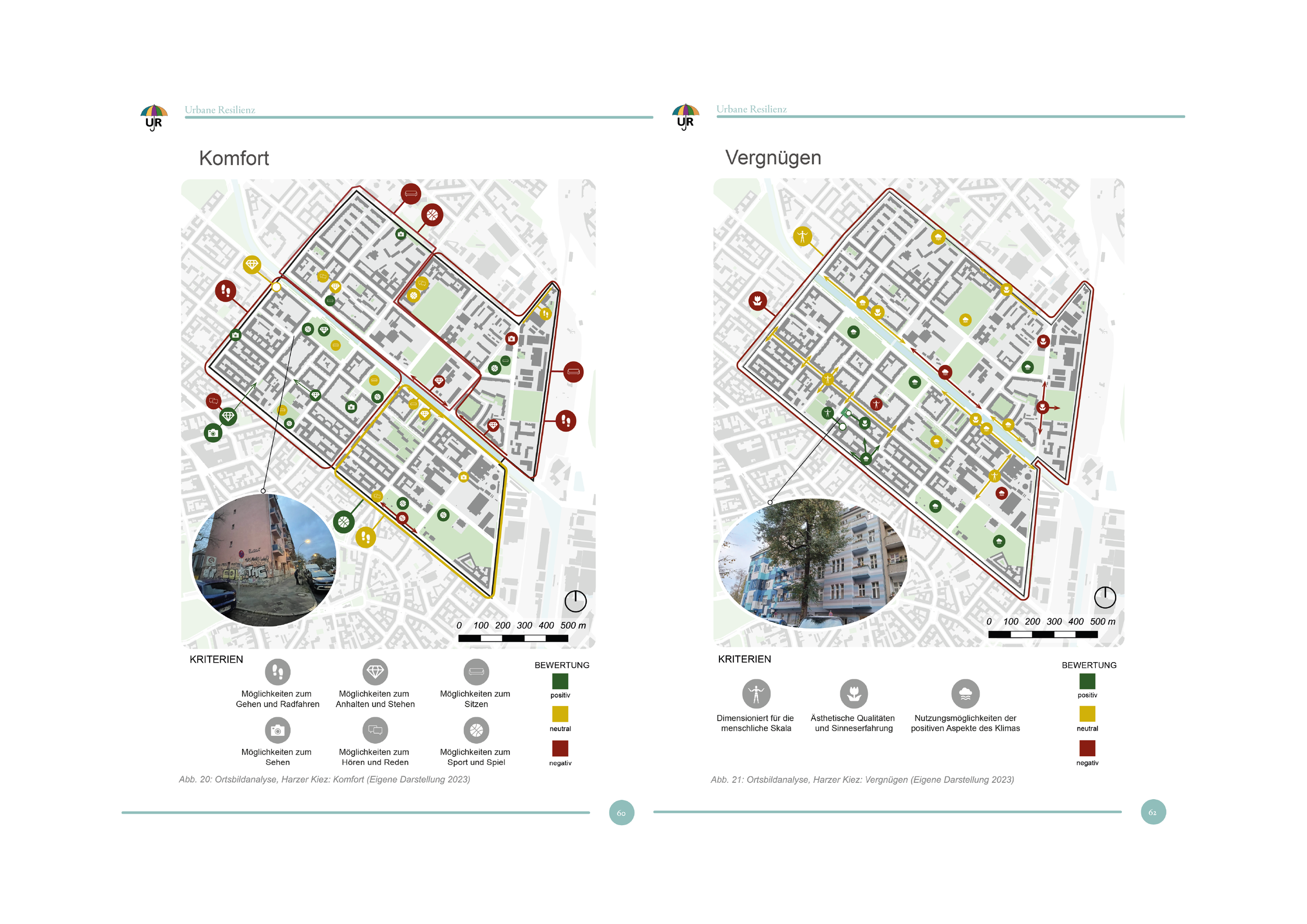Urbane Resilienz
Wege zur robusten, adaptiven und zukunftsfähigen Stadt
The "Urban Resilience: Pathways to a Robust, Adaptive, and Future-Proof City" project was developed by 14 Bachelor students from Technische Universität Berlin (B. Sc. Urban and Regional Planning) to explore strategies for enhancing urban resilience in response to social and economic challenges. The work focused on two areas in Berlin-Neukölln, Harzer Kiez and Weiße Siedlung, applying methods such as site analyses, data studies, and strategic planning. The goal was to create integrated concepts to strengthen urban infrastructure and social cohesion in the face of crises.
Supervision: R. Schröder
Responsibilities:
Phase 1: Research
Preparing and presenting thematic inputs on housing.
Identifying and studying best-practices examples to support project development.
Phase 2: Diagnosis of Study Areas
Designing template maps.
Conducting local analyses (Ortsbildanalyse) using Jan Gehl's methodology to evaluate protection, comfort, pleasure, and integration in public spaces.
Performing qualitative and quantitative analyses (Bestandsanalyse) with geographic data and on-site visits.
Creating cartographic representations of the results of the preliminary analyses.
Interviewing neighborhood management teams (Quartiersmanagements) and public sector specialists, such as representatives from the Department of Streets and Green Spaces (SGA).
Phase 3: Strategic Planning
Identifying spheres of action and creating guidelines.
Developing action plans.
Schematic Design.
Phase 4: Documentation and Presentation
Drafting the final report, consolidating analyses and recommendations.
Preparing presentations to share findings with stakeholders and academic participants.



